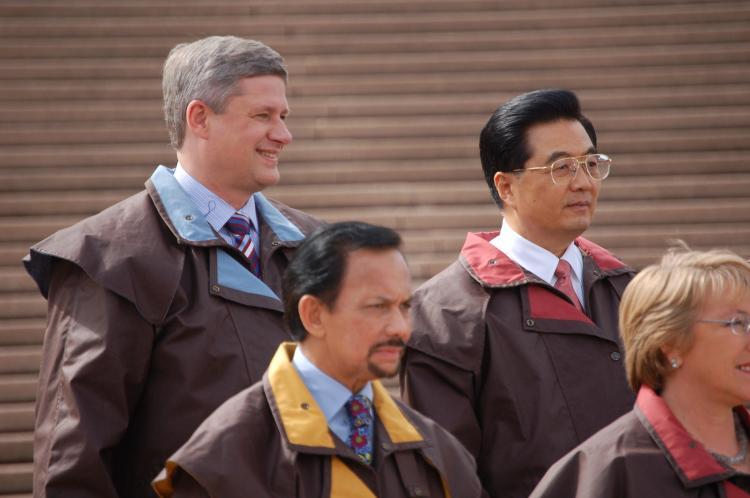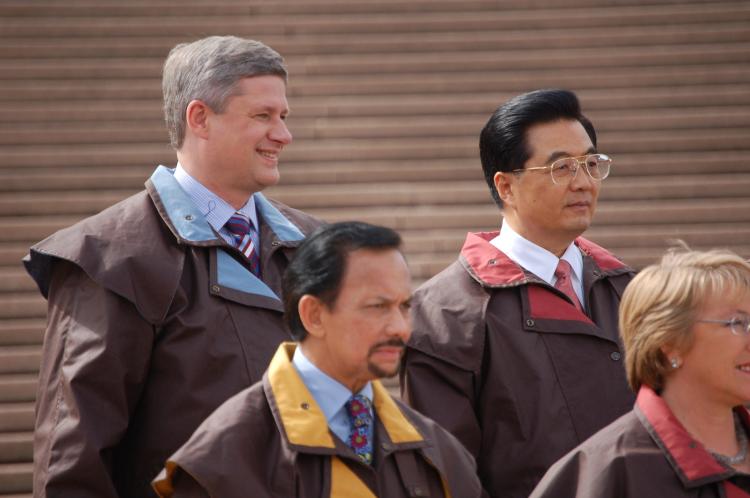OTTAWA—Next week Prime Minister Stephen Harper departs for his first visit to China since taking office, and so far the message for the trip has been trade alone.
China is Canada’s second-largest trading partner and third-largest export destination. And many seem content to view the relationship as simply as that, ignoring the inconvenience of discussing a political system still managed by an often repressive communist regime.
But trade, as with many things in China, is not that simple.
The shortcomings of China’s ruling party and its system suddenly become important when they affect whether product recalls are made when they should be, whether business partners overseas can be held to account, and whether our companies’ intellectual property is secure.
China is Canada’s—and the world’s—factory. While the U.S. is still our largest source of imports, many of the consumer products Canadians use every day come from China.
Rampant corruption and inadequate consumer protection means the quality of goods produced in China and exported to Canada is at best uncertain. Business interests guarantee minimum standards most of the time, but toxic products, including toothpaste contaminated with chemicals used in antifreeze and brake fluid, as well as poisonous dog food and lead-filled toys, still make their way to Canada and other countries.
China is Canada’s second-largest trading partner and third-largest export destination. And many seem content to view the relationship as simply as that, ignoring the inconvenience of discussing a political system still managed by an often repressive communist regime.
But trade, as with many things in China, is not that simple.
The shortcomings of China’s ruling party and its system suddenly become important when they affect whether product recalls are made when they should be, whether business partners overseas can be held to account, and whether our companies’ intellectual property is secure.
China is Canada’s—and the world’s—factory. While the U.S. is still our largest source of imports, many of the consumer products Canadians use every day come from China.
Rampant corruption and inadequate consumer protection means the quality of goods produced in China and exported to Canada is at best uncertain. Business interests guarantee minimum standards most of the time, but toxic products, including toothpaste contaminated with chemicals used in antifreeze and brake fluid, as well as poisonous dog food and lead-filled toys, still make their way to Canada and other countries.







